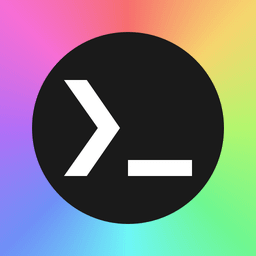Since I like FreeBSD so much on my server I installed it on my crappy unstable laptop as well. I only use it for browsing, editing notes and video conferencing when working from home, so I need no complex setup.
From top to bottom:
- Output of
fastfetch, an openneovimand my wallpaper switcher. The bar iseww. - A second workspace with Firefox and my notes.
- My “logout window”. Pressing a key combo will show this overlay with the option to close it or pick shutdown/reboot/logout.
Not pictured is fuzzel for running applications.
A few minor things still need to be done but nothing major will change.


For the few tasks I use this system it works about as well as when I had Linux on it. I mostly use the browser and terminal anyway, so those are pretty basic requirements. Video conferencing for my job is via WebEx, which has no working app for BSD so I have to use Chomium for that (their H264 plugin won’t work on Firefox in BSD). Launching their website in Chromium vs using their electron app on linux makes no big difference to me in the end of the day, though. Camera and microphone work fine.
Depending on your personal needs, however, BSD may not fulfill all of them. I think that if you want a state of the art desktop experience, BSD is not the way to go. Software can be a bit behind compared to Linux. Plasma 6, for example, is not ready for daily use yet. Xorg still is the stable way to go, I feel. Also, electron applications are not available in the package repository, so if you want to use those you will have to build them yourself. There usually are ports available though, so you can easily build them, but it will take a while. Other software will simply not build. The official Hyprland plugins for example rely on a build flag that is not available in the compiler BSD uses (if I read that correcly), so no additional plugins for this guy.
If you could summarise your system usage to, for example, using a full KDE Plasma 5 desktop, browser, office suite and playing some multimedia, there is no reason a BSD desktop could not work for you. It does become noticable how many electron-based applications are popularised nowadays, though, so you may need to look into alternatives for some applications you use. I chose Hyprland because I hate touchpads (or this touchpad specifically) and wanted to use it as little as possible… :-) I tested KDE though, and it worked perfectly.
If you want to try out FreeBSD as a desktop system and you have an adequately sized USB stick (f.e. 8GB or more), I would recommend trying out NomadBSD. It can be installed on a USB stick and you can use it as a full fledged OS; all packages are installed on the USB stick. It’s not fast, because USB, but that’s how I checked if all the hardware in this crappy laptop (it really is crappy and unstable, on all OS’es) worked with BSD.
At the end of the day I have a soft spot for BSD so I tend to ignore some of the downsides that come with when not used as a server. My main desktop and the PC connected to my television both run Linux, for example. BSD I use on my server, router and now this laptop.
Damn, you’re using this for work? From what I’ve read/heard the terminal stuff are actually quite solid, so I guess it makes sense if all you do involve mainly vim, coreutils, ssh, and browsers.
I’m planning on setting a FreeBSD or OpenBSD for tiny hime server.
Also, webex sucks.
In a work context only for video meetings. When working remote I use my Linux desktop which lacks a webcam and microphone. Also, we use the Cisco ICAClient to work remote and I doubt that would work on a BSD system anyway.